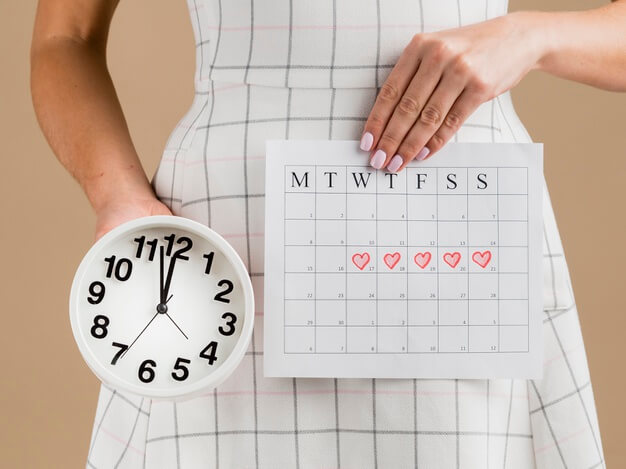 This article was first published for PinkLifestyle.com here.
This article was first published for PinkLifestyle.com here.
Hygiene makes an important part of our well-being. Small daily rituals like taking a bath, brushing your teeth, and changing your undergarments make a whole great difference.
Though these practices apply to both genders, women would need to take a step further especially during the special days of the month. We know it can be a hassle, but you have to pay attention of your hygiene during this time if you want to prevent any complications in the future.
Let’s jump on this very important topic of every woman: period and the necessary hygiene during and post period time.
What is Menstruation?
Menstruation is one of the crucial biological processes occurring in a woman’s body on a regular basis. This physiological phenomenon that every woman experiences deserves utmost caution and hygiene.
Although women undergo periods regularly; they may still overlook the importance of proper sanitation practices during these days. Ensuring menstrual hygiene management during menses is crucial as slight negligence makes women vulnerable to microbial infections.
Most of the women focus on physical hygiene while abandoning intimate hygiene. The negligence can lead to vaginal irritation, reproductive and urinary tract infections, and even cervical cancer.

Adopting adequate hygiene measures could avert the chances of these conditions.
1) Washing genital area during the menstruation
Maintaining your genital hygiene is essential during menstruation. Proper hygiene measures during periods help to protect the genital areas from skin irritation, infections, and other related issues. Blood provides the perfect environment for bacteria to grow. Doctors suggest washing the genital area at least twice daily during menstruation to prevent microbial infection.
2) Thorough hand washing to prevent bacterial transmission
Apart from genital areas, proper handwashing is vital before using any menstrual product. It is important to prevent the transmission of bacteria to the genital area via hands. Similarly, wash your hands after using the product to prevent bacteria from spreading to other body parts.
3) Avoid scented products during periods.
During menstruation, it is imperative to avoid scented toilet papers or napkins. They contain different chemicals that may cause irritation and burn like symptoms. Before using any product, make sure that they are fragrance and additive-free. Instead of using chemicals, prefer organic products, free from preservatives and pesticides.
Apart from toilet papers, scented oils, pads, powders, and deodorants should be avoided during and after periods as they may cause a reaction.

4) Changing pads frequently to prevent infection
Changing your pad frequently during the menstrual cycle is the utmost requirement that every woman needs to follow. According to health experts, avoiding the same pad for more than four hours is a crucial part of Menstrual hygiene management.
No matter if you are experiencing heavy or light blood flow, you should change your pad within four hours. The reason is that when menstrual blood leaves the body, it gets contaminated with the body’s natural microbes.
If you are using the same pad for longer than four hours, these organisms acquire favorable moist and warm conditions to multiply, which causes infections and irritations.
5) Essential hygiene practices while using tampons
If you prefer using tampons to absorb menstrual blood, try to use a saturated one to soak up all blood. The tampon is also a good choice for women as they are made of absorbent material. However, extra caution is required while using tampons as they are inserted in the vaginal opening.
Change your tampons every four to six hours as changing them after regular intervals are important. Using them for a long time can cause odor or infection.
6) Things to consider while using menstrual cups
In the recent few years, menstrual cups have become increasingly popular to be used during the periods. It is a small, bell-shaped cup inserted into the vagina to collect menstrual blood. They are made up of reusable materials that people wash and use again and again.
Menstrual cups are considered safe by doctors; however, proper hygiene measures are essential to prevent complications.
Menstrual cups can be used for 6 to 12 hours; however, they should be emptied twice a day and thoroughly washed before using again.
8) Avoid douching after periods
Many women use vaginal douches after periods to wash the vagina and get rid of an unpleasant odor. Douching is a method that uses a mixture of vinegar and water, which comes in a spray bottle or bag.
Even douching once a week increases the risk of cervical cancer in women. Instead of douching, health experts recommend using water for washing the vagina to keep it clean.
Proper hygiene is crucial for your well-being. But the need is more pressing during and after periods. Take these simple measures to ensure that your body is safe from any kinds of infections.
References:
Blog, P. F. W. (2021). Do you make any of these 7 menstrual hygiene mistakes? Pavilion for Women. https://women.texaschildrens.org/blog/do-you-make-any-these-7-menstrual-hygiene-mistakes
Budhathoki, S. S., Bhattachan, M., Castro-Sánchez, E., Sagtani, R. A., Rayamajhi, R. B., Rai, P., & Sharma, G. (2018). Menstrual hygiene management among women and adolescent girls in the aftermath of the earthquake in Nepal. BMC Women’s Health, 18(1), 1. https://doi.org/10.1186/s12905-018-0527-y
Can I Wear the Same Pad All Day? (for Teens) – Nemours KidsHealth. (2018, July). The Nemours Foundation. https://kidshealth.org/en/teens/changing-pads.html
Desk, L. (2020, May 28). Menstrual Hygiene Day 2020: How to make periods more hygienic. The Indian Express. https://indianexpress.com/article/lifestyle/health/menstrual-hygiene-day-2020-simple-tips-safe-periods-6427664/
About Dr. Martha Tara Lee
 Surrounded by friends who were sexually inhibited and struck by dire lack of positive conversations around sex and sexuality in Singapore, Dr. Martha Tara Lee set out to make a positive difference in embarking on her doctorate in human sexuality before launching Eros Coaching in 2009. Today, she remains dedicated to working with individuals and couples who wish to lead self-actualised and pleasure-filled lives.
Surrounded by friends who were sexually inhibited and struck by dire lack of positive conversations around sex and sexuality in Singapore, Dr. Martha Tara Lee set out to make a positive difference in embarking on her doctorate in human sexuality before launching Eros Coaching in 2009. Today, she remains dedicated to working with individuals and couples who wish to lead self-actualised and pleasure-filled lives.
She also holds certificates in counselling, coaching and sex therapy, and her fourth degree – a Masters in Counselling in May 2018. In practice for more than 10 years, she is the only certified sexuality educator and certified sexuality educator supervisor by the American Association of Sexuality Educators, Counselors and Therapists (AASECT) in Singapore. She is also a Red Tent Women’s Circles Facilitator from Star of Ishtar.
Often cited in the media, Dr. Lee is the appointed Resident Sexologist for PinkLifestyle.com; as well appointed sex expert for Men’s Health Singapore, and Men’s Health Malaysia. She was recognised as one of ‘Top 50 Inspiring Women Under 40′ by Her World in July 2010, and one of ‘Top 100 Inspiring Women’ by CozyCot in March 2011. She has published four books: Love, Sex and Everything In-Between, Orgasmic Yoga, From Princess to Queen and {Un}Inhibited.
Martha works with individuals and couples in private coaching sessions, and conducts her own workshops. She takes prides in making sure all her workshops are also fun, educational, and sex-positive. This comes easily to her because even though she is extremely dedicated and serious about her work, she fundamentally believes that sex is meant to be fun, wonderful, amazing and sacred. As such, this serious light-heartedness has shone through again and again. For her full profile, click here. Email her here.

 Become a Patron!
Become a Patron!
